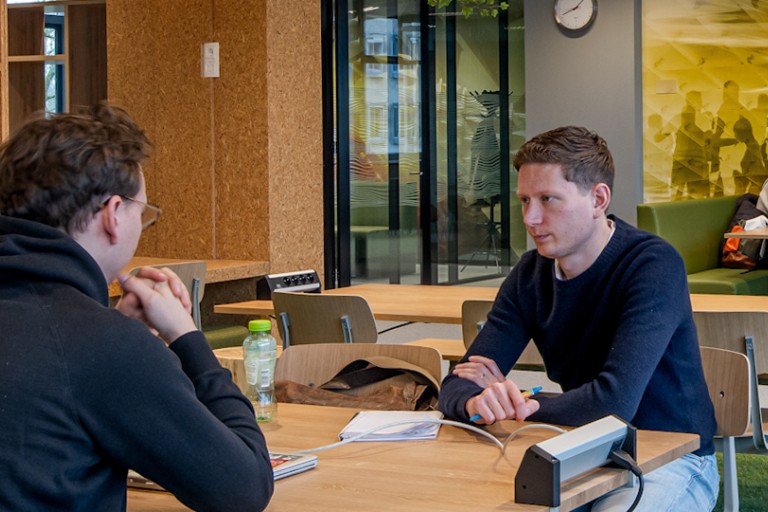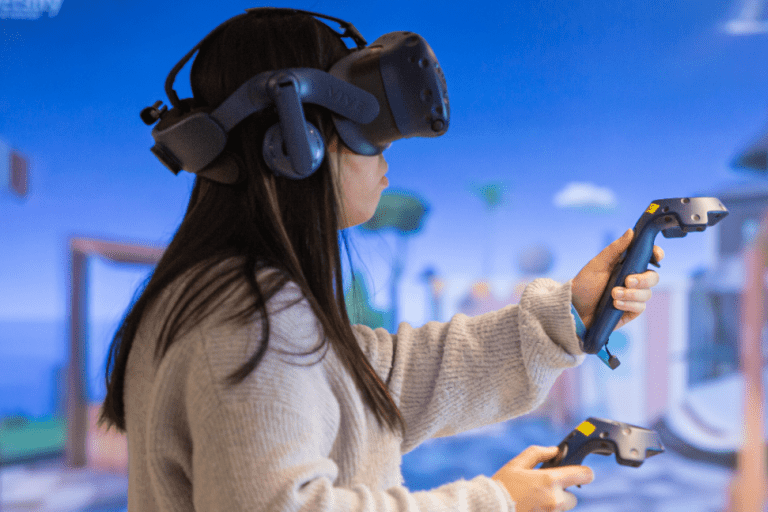Artificial Intelligence is one of the two BUas transversal research themes, in addition to Sustainability Transitions. BUas aims to leverage AI as a transformative tool - while keeping ethical consequences at the forefront - to achieve meaningful outcomes.
BUas integrates AI into research with a focus on educational goals and industry needs. This includes ethical considerations, cultural inputs and sustainability efforts. The aim is to ensure that research initiatives are academically rigorous, socially responsible, and globally relevant.
Integrating AI in research and innovation
At BUas, our approach to AI in research and innovation is to maintain a close link witheducation while being receptive to various developments, including ethical concerns, cultural inputs, and sustainability efforts on a global scale. We ensure that our researchinitiatives are not only academically rigorous but also socially responsible and globally relevant, contributing significantly to both academic and industry advancements.
Research and innovation are intricately linked with our educational objectives, specifically aligning with our learning outcomes. This enables us to harness new knowledge and skills and to contribute to the industry with new products, systems or entrepreneurial ventures.
With ethical considerations at the forefront
Within the field of AI ethics, a multitude of principles warrant consideration. While all of these are generally seen as essential, carefully selecting key focus points and articulating clear definitions for them are paramount. These principles inform ethics and sustainability by design, forming the bedrock of an ethical approach to AI. For BUas, our focus centres on:
- Fairness, which involves the problem of bias in AI.
- Human agency, which concerns the level of autonomy of AI and the importance of human decision-making and accountability at all times.
- Equitable access, which means that as an educational institute we have a responsibility to allow equal access for everyone in our community.
- Transparency, which involves not only transparency in decision-making about (the use of) AI, but also ensuring a degree of transparency of AI systems in order to develop trustworthy and privacy-aware AI.
Conclusion
Overall, BUas’ activities relating to Artificial Intelligence involve a comprehensive approach to integrating AI, emphasising ethical use, human-centred design, and alignment with educational and industry needs.
A high level of AI knowledge and insights are already available at BUas. In the second half of 2024, BUas formally initiated an Applied Data Science and Artificial Intelligence professorship.
More about research

Professorships
Find out more about our professorships and R&D projects or get in touch with our experts.

Centres of expertise
BUas collaborates with partners all over the world. We develop research, share our knowledge and co-create to shape a better world.

